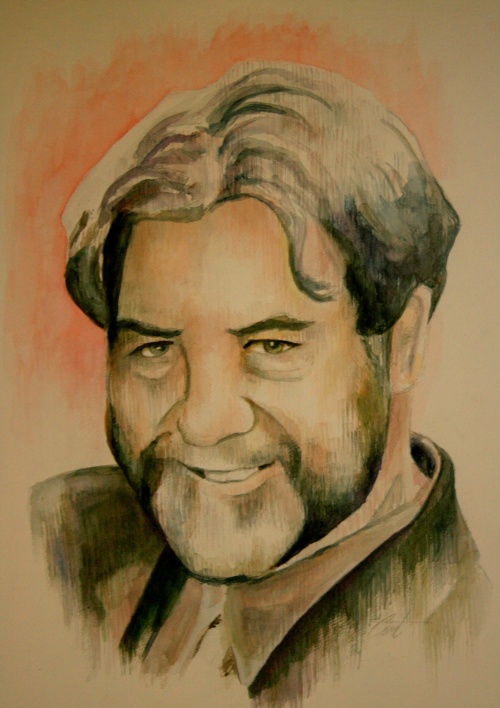Posted in Absence, Art, Bennington, Books, Community, Faith, Family, Friendship, Gratitude, Grief, Hope, Journey, Language, Liam Rector, Life, Loss, Poetry, Students, Teachers, The Beautiful Work, Uncategorized, Writing, tagged Absence, Art, Bennington, Books, Community, Faith, Family, Friendship, Gratitude, Grief, Hope, Journey, Language, Liam Rector, Life, Life and How to Live It, Loss, Poetry, Poetry Magazine, Students, Teachers, The Beautiful Work, Tom Sleigh, Writers, Writing, Writing Community on August 21, 2008|
Leave a Comment »
For the Executive Director of the Fallen
by Tom Sleigh
In memoriam Liam Rector
The little boy crying out
Weenie Weenie
in self-panicking delight,
waving his little cock
under the banner
of the sun, seemed pure Blake,
all anarchy and energy,
an innocence unfrightened
of itself that shook the lake’s
waters and unsettled
the strained composures
and appointed certainties
of whatever Absolute Speaker
had been ranting in my brain:
Peace Through Strength
Justice Must Be Ours–
so many demon faces
in the glass city.
Each pubic triangle
seemed, under the bathing suits,
to grow electrical and crackle
with a sexual shock
that made me turn my face away:
and who should be there
but you, my dear Lord of Misrule,
blowing smoke in all our faces,
the clean bullet hole in your forehead
above your self-ironic smile:
Don’t let the monkeys
stop typing–
and after I swam
and I was sitting on the bank,
after the boy and his parents
had picked up and gone home,
I played the Noh play over for you
in the tape loop of the void
where your voice and laughter
so casually reside:
how the mother
gone searching for her
missing son finds him dancing
by the lake, and as she tries
to hold him he slips through
her arms just as she slips
through his arms–
and as she cries out
in perfect pitch in perfect time
to the shrieking bamboo flute
that her boy has drowned
she understands that she too
has drowned, that she too
is a ghost returning
to dance as they
dance together in a tighter
and tighter round.
Read Full Post »
